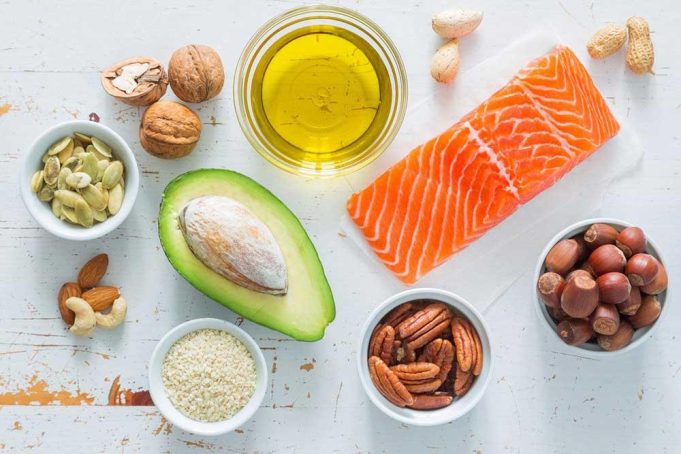In the bustling world of nutrition, where trends come and go as swiftly as a passing breeze, one constant remains: the importance of heart health. Amidst the myriad of dietary choices, fats often find themselves at the center of controversy and confusion. However, not all fats are created equal. As we embark on a journey to unravel the mysteries of dietary fats, we delve into the realm of healthy fats—those unsung heroes that support and sustain the very core of our being. This article aims to illuminate the path to choosing fats that not only delight the palate but also nurture the heart, guiding you through the intricate dance of balancing taste and wellness. Join us as we explore the vibrant spectrum of healthy fats, offering insights and practical tips to empower your culinary choices and promote a heart-healthy lifestyle.
Understanding the Role of Fats in Heart Health
When it comes to promoting heart health, the type of fats you consume can make a significant difference. Not all fats are created equal, and understanding which ones to include in your diet can help maintain a healthy heart. Unsaturated fats, such as those found in olive oil, avocados, and nuts, are known to be beneficial. These fats can help reduce bad cholesterol levels, which can lower the risk of heart disease. Meanwhile, omega-3 fatty acids, found in fatty fish like salmon and mackerel, are celebrated for their anti-inflammatory properties and ability to improve heart health.
- Monounsaturated fats: Present in foods like olive oil, avocados, and almonds.
- Polyunsaturated fats: Found in sunflower oil, walnuts, and flaxseeds.
- Omega-3 fatty acids: Abundant in fish such as salmon, sardines, and mackerel.
On the other hand, it’s important to limit the intake of saturated fats and trans fats. Saturated fats, commonly found in red meat and full-fat dairy products, can raise cholesterol levels and increase the risk of heart disease. Trans fats, often found in processed and fried foods, are even more detrimental and should be avoided as much as possible. By focusing on healthy fats and minimizing harmful ones, you can take a proactive approach to protecting your heart.
Decoding Good Fats: What to Include in Your Diet
Understanding the types of fats that benefit your heart is crucial for maintaining overall health. Monounsaturated fats, found in olive oil, avocados, and nuts, are known to help reduce bad cholesterol levels and are an excellent choice for enhancing heart health. Incorporating these into your diet can be as simple as drizzling olive oil over salads or snacking on a handful of almonds. Another heart-friendly option is polyunsaturated fats, which include omega-3 and omega-6 fatty acids. Foods like salmon, flaxseeds, and walnuts are rich in these fats and can help decrease the risk of heart disease when consumed regularly.
- Olive Oil: Use as a dressing or in cooking for its rich flavor and health benefits.
- Avocados: A versatile fruit that can be added to salads, sandwiches, or smoothies.
- Nuts: Almonds and walnuts are great for snacking and provide essential nutrients.
- Fatty Fish: Salmon and mackerel are excellent sources of omega-3 fatty acids.
- Flaxseeds: Sprinkle on cereals or mix into smoothies for an omega-3 boost.
By thoughtfully including these good fats in your diet, you can support your heart health without sacrificing flavor or enjoyment in your meals. Remember, balance and moderation are key, so aim to incorporate a variety of these sources to reap the maximum benefits.

The Impact of Bad Fats and How to Avoid Them
In the quest for heart health, understanding the role of different types of fats is crucial. Trans fats and saturated fats are the primary culprits that can wreak havoc on your cardiovascular system. These bad fats are often found in processed foods, baked goods, and fried items, where they lurk under the guise of deliciousness. Consuming them in excess can lead to increased levels of LDL cholesterol, inflammation, and ultimately, a higher risk of heart disease.
To steer clear of these harmful fats, consider these strategies:
- Read labels: Look for terms like “partially hydrogenated oils” and avoid products containing them.
- Opt for cooking methods like grilling, steaming, or baking instead of frying.
- Choose whole foods: Fresh fruits, vegetables, nuts, and seeds are naturally free of trans fats.
- Select lean meats and trim visible fat before cooking.
- Incorporate healthy fats such as those from avocados, olive oil, and fatty fish like salmon.
By making these mindful choices, you can reduce the intake of detrimental fats and foster a heart-friendly diet. Remember, small changes can lead to significant improvements in your heart health journey.

Incorporating Heart-Healthy Fats into Everyday Meals
Embracing a diet rich in heart-friendly fats can be a delicious journey toward better health. Start by incorporating foods like avocados, which are not only creamy and satisfying but also packed with monounsaturated fats that help reduce bad cholesterol levels. Nuts and seeds, such as almonds, walnuts, and flaxseeds, are excellent sources of omega-3 fatty acids. These can easily be sprinkled over salads, blended into smoothies, or enjoyed as a crunchy snack. When cooking, consider using olive oil or canola oil as healthier alternatives to butter or margarine.
- Avocados: Perfect for guacamole, sliced on toast, or mixed into salads.
- Nuts & Seeds: Ideal for a quick snack or as a topping for yogurt and oatmeal.
- Olive Oil: Use for sautéing vegetables or drizzling over pasta.
- Fatty Fish: Salmon, mackerel, and sardines are rich in omega-3s and can be baked or grilled for a nutritious meal.
Incorporate these wholesome fats into your meals to not only enhance flavor but also to nurture your heart’s well-being. Balancing these choices with a variety of fruits, vegetables, and whole grains can create a robust foundation for a heart-healthy diet.






























